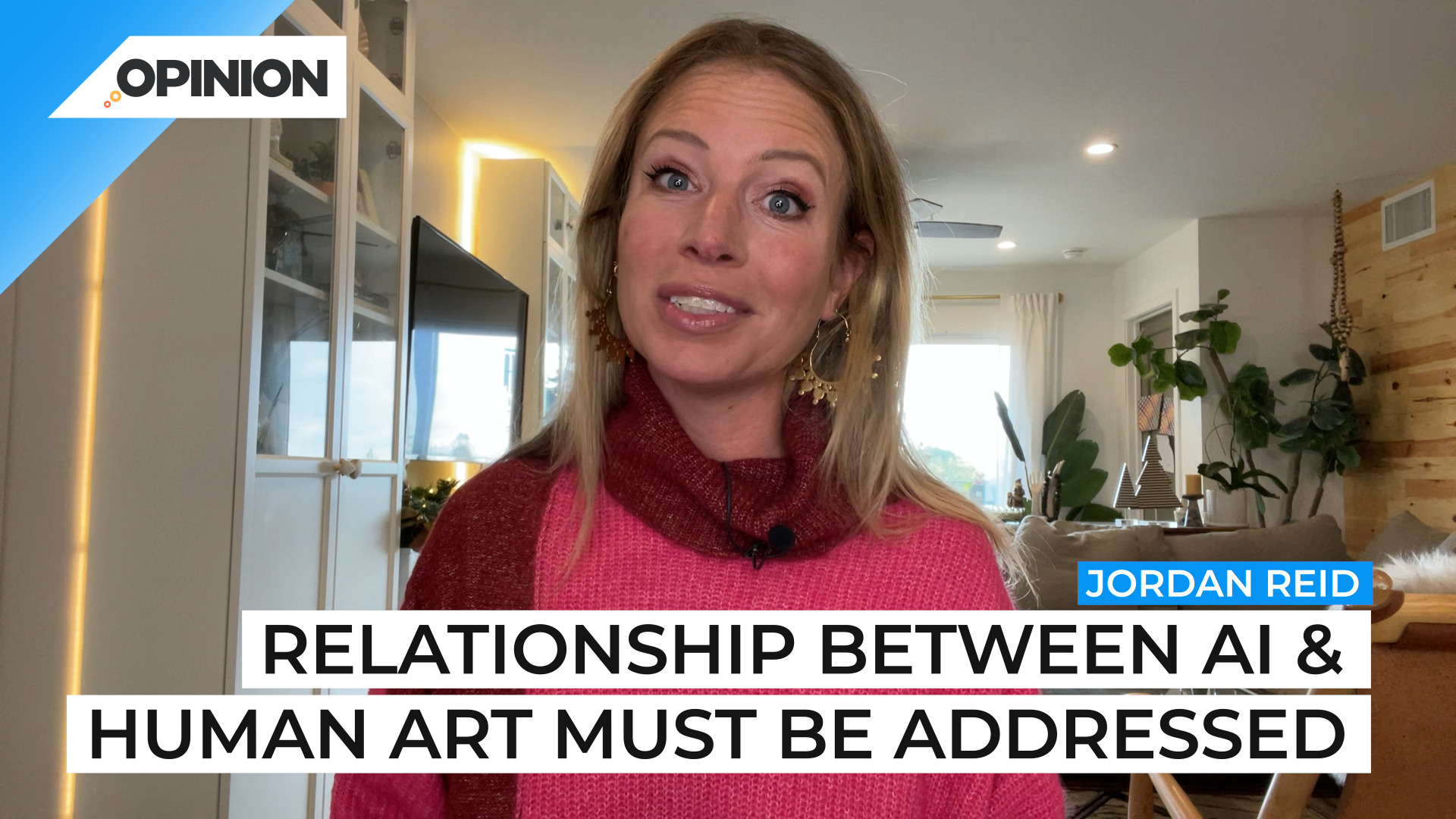
Commentary
-
Our commentary partners will help you reach your own conclusions on complex topics.
For the past week or so, the Internet has been aflutter with talk of Lensa, an app that uses AI to combine assorted images of you into so-called “magic avatars,” in which you can see what you’d look like as…essentially, an artistic masterpiece. The AI creates images of you in various styles, including anime, oil paint, and what can best be described as “woodland fairy creature.”
On the surface, this is all pretty fun and harmless, right? Except once I downloaded my images, I noticed something odd – even unsettling.
The pictures didn’t all look like me – some of them looked like Jessica Biel, and others looked like…I mean, I don’t even know what we call this [insert weird robot pic unless it’s too porn-y; I’ll give you two options for what I say here]…but the ones that looked like me…they really looked like me. Like, they captured something – and I don’t want to sound too crazy here – but…something essential. In the eyes. It captured personality.
And I don’t know how I feel about that.
First, going just on the volume of avatars I’ve seen on my feed – the app was apparently downloaded 1.6 million times in November alone – Lensa is collecting a lot of data about a lot of people.
And the creators say that all the data is deleted after the avatars are created, but…come on. I don’t have that optimistic a view of technology. Or humans.
But the app has also raised some fascinating debates about everything from ethics and representation to appropriation.
How the app works is by collecting work from artists all over the Internet, and learning their techniques – then applying them to facial recognition technology.
Which naturally leads to the question: Do the app’s creators have the right to use real artists’ work to train their AI’s “eye,” and then sell that work for a tiny fraction of the price of a real commission?
There’s a similar issue created by AI text generators, which have advanced to the point that they’re able to create output that’s impressive to the point of alarming many.
A recent Atlantic article told the story of a UK professor who used OpenAI technology to generate an entire essay from a prompt…and would have given it a good grade.
If students employ this technology, do they ever really learn the essential skill of writing? Writing is how we teach children to think critically, to develop arguments – and if they can input a prompt into a computer program, doesn’t that change the fundamental structure of…the entire educational system?
It’s a mind-bending problem for sure, and absolutely suggests that the relationship between AI and human art in all forms needs to be addressed…but it’s also more layered than just “AI bad.”
Take the argument of Virginia Heffernan, in the excellent book Magic and Loss – Heffernan holds that changes of this sort (to be clear, she wasn’t talking about AI specifically, or AI art), aren’t inherently “good” or “bad” – they’re just…what’s next.
Emojis and emoticons are essentially now accepted as a sort of hieroglyphic form of written language. And remember how the early users of cameras feared that the technology was in a way stealing their souls? Who’s to say that the new AI technology won’t open doors for artistic expression and experience far beyond what we know today?
Alternatively, who’s to say it won’t just take over the world, Terminator style? Watch this space.
-
Americans must reject Trump to defend our democracy
At the end of the Republican National Convention, Donald Trump accepted the nomination as the GOP candidate for president. In the first part of his acceptance speech, Trump called for unity and healing, although he derailed into partisanship as he continued. Critics have debated the media’s role in handling Trump’s speech. Some argued he was…
-
It’s time for Kamala Harris to pick up the torch
Debates have continued among Democrats about whether President Joe Biden is the best candidate for the 2024 election or whether an alternative Democratic leader might be more electable. While there’s no shortage of fellow Democratic leaders to choose from, President Biden and his supporters have continued to assert that Biden can and will win as…
-
Republicans want to sabotage US education
Former President Donald Trump’s official educational policy platform reveals plans to eliminate the Department of Education and seize the financial assets and endowments of elite U.S. universities. These proposals and others have convinced some liberal critics that the true goal of Republicans is to intentionally weaken U.S. education. Watch the above video as Straight Arrow…
-
Despite poor debate performance, Biden deserves our support
President Joe Biden himself admits that he delivered a “bad” performance in the first 2024 presidential debate. About a week after what some consider to be the worst debate performance in the history of televised debates, polls indicate that more voters than ever have an unfavorable opinion of the president, believe he is too old…
-
The modern-day Republican woman has terrifying role models
In a recent New York Magazine cover story entitled, “How Did Republican Women End Up Like This,” Rebecca Traister writes about some of the more polarizing examples of female Republican leaders and their positions on abortion, the transgender movement and women in general. With Republican women set to play a major role in the November…
Latest Opinions
-
 U.S. Department of Defense
U.S. Department of Defense
Congress still trying to figure out how to reduce wasteful military spending
-
 DVIDS
DVIDS
US Navy, Air Force making waves with new weapons at RIMPAC
-
 Getty Images
Getty Images
Israeli PM Netanyahu meets with Trump at Mar-a-Lago
-
 Getty Images
Getty Images
Growing US nuclear power resurgence reaches the nation’s heartland
-
 Getty Images
Getty Images
Beer from the sun, other solar thermal projects get government funding
Popular Opinions
-
In addition to the facts, we believe it’s vital to hear perspectives from all sides of the political spectrum.


